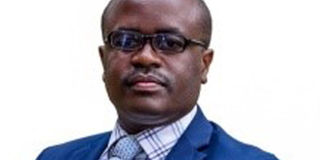Africa needs stronger continent-focused media brands to guide her elite mindset

Raymond Mugisha
Africans constitute the largest chunk of consumers of content of the BBC, according to a 2016 BBC article. At the same time, CNN reports that it is the biggest international media brand amongst affluent audiences across Africa, from a 2016 survey. That same survey puts the reach of CNN to the elite population of Africa at 60 per cent, with the BBC at 47 per cent, Nat Geo at 41 per cent, Al Jazeera English at 39 per cent and others making a good reach to Africa consumers as well. There is therefore a rich market for foreign media content on the African content.
To have a population that is informed about goings on beyond home would ordinarily be good for Africa. However, the above interest in foreign media is also significantly driven by the unfortunate fact that Africans pay attention to foreign media houses for news and discourse about Africa herself, in preference to indigenous media content. They trust that foreigners have the best authority on informing them about their home affairs. This state of matters ends up ceding too high a level of influence of foreign media upon Africa’s elite class, and by implication upon everyone on the continent since the elite are at the forefront of all important agenda. Foreign media influence yields external political and economic inspiration upon the African population. The scenario can be deployed to compromise pan-African agenda, if foreign players so wish. Many of them are possibly not incessantly preoccupied with the intention to do so, but it is a standing threat to Africa.
Even in today’s Africa, about 60 years after independence, it is not uncommon to meet Africans who not only pay homage to foreign media houses, but go to the extent of near idolisation of foreign media content. They believe foreign media houses have the final say on matters African. The African mindset, under such foreign influence, is significantly in harness. One cannot claim full independence, with one’s mind under external control. One’s actions and decisions will often follow the path of those under whose control one’s mind is. It thus goes without saying that a lot of what happens in Africa is not hatched in Africa, in the strictest sense, but instead remotely and tactfully imposed, even though indirectly. This poses the danger that Africa’s agenda in all areas such as trade unity, political federation efforts, innovation and indeed the self-esteem of a now burgeoning young population on the continent is not under the continent’s firm control. It is actually possible that most of what derails the African elite class from wider continental focus, to make them sustain their attention on the narrower scope of focus on separate African states is fed, in part, from such foreign influences since the separate African states were created by foreign interests to begin with. Part of the result of these influences is the solidifying of African state borders and perpetuation of scenarios akin to sibling rivalry, except that the costs involved cannot be analogised to the impact of simplistic fights between siblings.
This should however, in no way at all, be taken to imply that the African problem is entirely imposed by foreign influences. Our biggest problems are our own making. They emanate from our choices as a people, with the biggest of them possibly being the failure to execute what we have always planned to do. Many of the documents on Africa’s strategic intentions, right from the charter of the Organization of African Unity of the early 1960’s and other major documents at both continental and individual country level for African states, reveal that if Africa was able to execute even just a significant part of what we always commit to do on paper, we would be far from where we are today.
However, going back to media and its influence on Africa’s agenda, it is noteworthy that growth of both private and government owned media houses in different countries on the continent has not yet been able to reverse the mindset of the ordinary African elite, away from strong foreign media brands. It is thus logical to raise the stakes and place the hope for an effective pan-African media agenda at the work table of the African Union. The formation or nurturing of strong African media brands that will serve to focus the African population to seek content from within, rather than from external sources, should be part of the key drivers of the African Union strategic plan for the continent.
As important as it is to focus on the core issues that are key for the advancement of Africa, as the Union is doing, it is important to have charge of the African elite mindset to enhance the continental strategy.
Raymond is a Chartered Risk Analyst and risk management consultant




